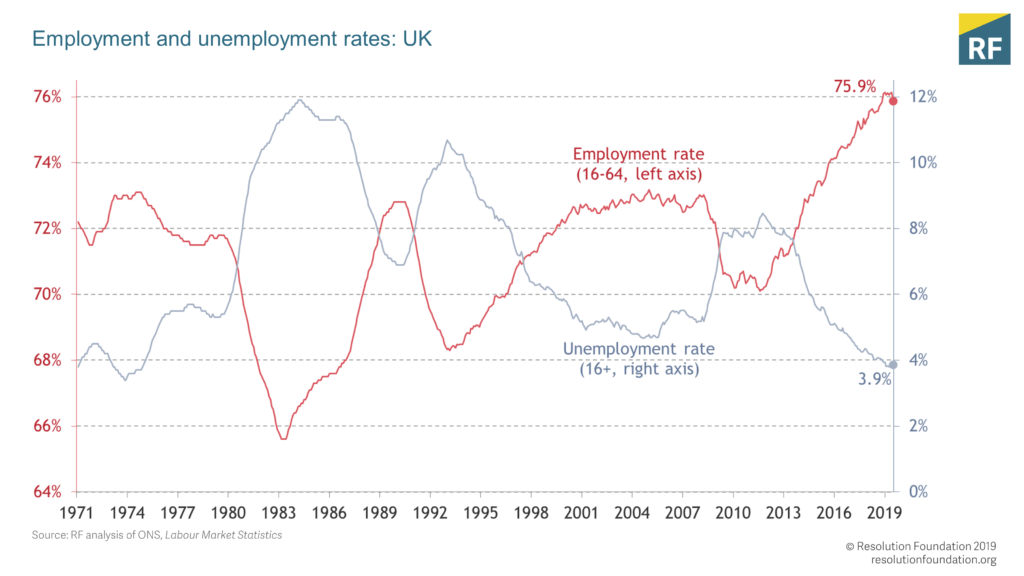Why are three million more of us working today than were back in 2008? How has our employment rate reached 76 per cent, when full employment before the crisis meant 73 per cent of us working?
These are employment levels no-one thought possible a decade ago. There is almost no bigger change to our economy over the past decade than its jobs boom. And yet it is poorly understood.

So why are so many of us working? Because we’re a lot poorer than we expected to be. That’s the fundamental cause of record employment.
Some have argued that actually policy changes are key. Conservative and Labour politicians, for very different reasons, like to say it’s because of the UK’s flexible labour market. It’s true that flexibility has enabled swift employment growth, and the less welcome rise in insecure work within it. But it cannot explain why more people are working today than before the crisis for the simple reason that the labour market is not significantly more flexible than it was in 2008.
Conservative ministers often say the jobs boom is because of Universal Credit and the better incentives to work it provides. But this rather misses the fact that the new benefit’s roll-out has been so slow that it only accounted for two per cent of the working-age population as late as 2018 – five years into the employment boom.
Continue reading
No comments:
Post a Comment